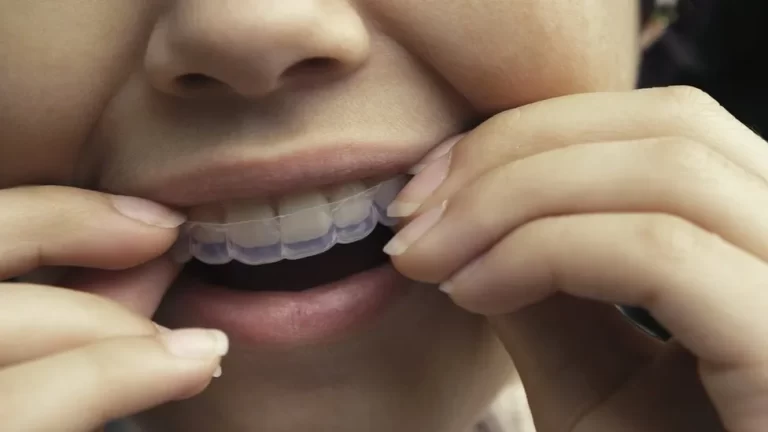Smile Direct Club has shut down months after filing for bankruptcy in the US, leaving some customers confused and stranded as their treatment is ongoing.
Best known for selling clear aligners remotely, the firm said it had made the “incredibly difficult decision” to wind down operations late on Friday. The US-based dentistry company was offering aligners for about £1,800 without the need to visit a dentist.
A last-ditch rescue attempt failed though as it was weighed down by debt. Founded in 2014, the orthodontics company styled itself as a disruptor to the “bricks-and-mortar” dental industry.
In traditional dentistry, “train-track” braces and clear aligners are fitted by dentists and orthodontists themselves, or a trained orthodontic therapist, after an in-person consultation. Many customers were drawn to Smile Direct Club because of the lower price point and the fact they could take the moulds for their aligners themselves at home.
Treatment with the company typically takes between four to six months and customers have online check-ins with registered dentists. In a statement on its website, the company says that it has “improved more than two million smiles and lives”.
However, customers in the US, UK and elsewhere have been left confused as the firm says that its customer support line will no longer be available, despite the fact that customers may need check-ins or adjustments for their aligners.
It recommends that if people want to carry on with their treatment, they should get in touch with a local dentist.
It has also angered some customers by saying that the “lifetime smile guarantee” it previously offered was no longer valid, while those with payment plans set up are expected to continue making payments.
There will be more information on refunds, it said, as the bankruptcy process continues and “next steps” are determined.
‘Disgusted' by treatment
On Facebook, several users questioned what to do about their treatment and complained about having made recent payments. One wrote: “Disgusting how we have all been treated… I only just signed up for my aligners, made my first payment and now I won't even be receiving my braces”.
Another said his wife had paid for her treatment in full and needs a new retainer, but she was now unsure whether or not she would receive this at all. On Instagram, another customer questioned: “I did six months [of] treatment – and now what? I can't finish?… This is heart-breaking.”
In the statement on its website, Smile Direct Club apologised for the inconvenience caused. Lisa Webb, consumer law expert at the organisation Which? said that many customers would feel “adrift” due to the company going bust.
She pointed out that where refunds would be available, they will be handed by liquidators. “But customers will be at the back of a long queue of creditors so this is unlikely to amount to much, if anything at all,” she said.
She recommended that anyone in the UK who is still waiting for products, and has not had their order cancelled and paid via credit card, could also try to claim their money back via Section 75 under the Consumer Credit Act.
Smile Direct Club was forced to file for a Chapter 11 bankruptcy in the US in late September, which postpones a company's obligations to its creditors, giving it time to reorganise its debts or sell parts of the business.
But on Friday, it emerged that a last-ditch attempt rescue deal had failed.
Attorney Spencer Winters told a judge in bankruptcy court that a deal for its founders to provide fresh funds and buy Smile Direct Club out of bankruptcy had not come through after it could not get its most important lender to agree.
“We pushed very, very hard this week and it just didn't come together,” he said. It had once been valued at as much as $8.9bn (£7bn), but failed to turn a profit and had nearly $900m worth of debt at the time it filed for bankruptcy, according to Fortune magazine.
The firm, boosted by selfies and positive reviews online, had also faced issues with patent clashes and dentists' concerns ranging from aligners fitting poorly to claims of permanent nerve damage and tooth loss.
It vigorously defended its practices throughout and said consistently that customers' treatments are reviewed by licensed professionals, while risks were listed as well.
— CutC by bbc.com


